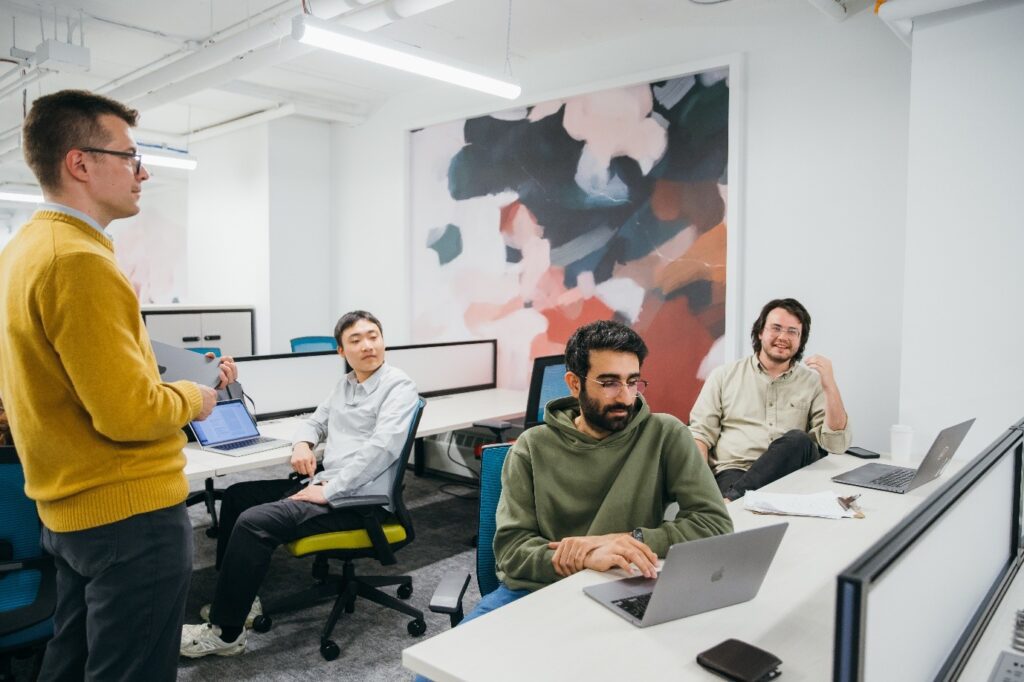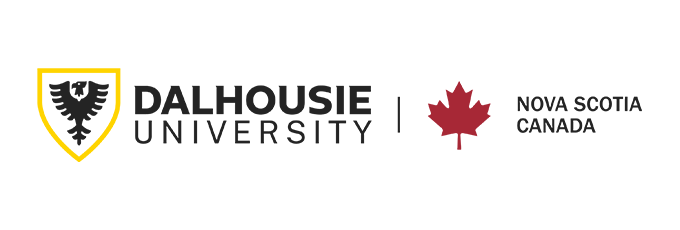Originally from Vietnam, Tien Hoang Le spent nearly a decade working in tech startups across different sectors, with a strong focus on blockchain and emerging technologies. Along the way, he witnessed how security breaches costed users billions of dollars and broke trust in communities. These experiences shaped his belief that technology should be as adaptable and secure as possible – eventually leading him to pursue a Master of Digital Innovation at Dalhousie University.
“I chose Dalhousie because it offers the perfect blend of technical training and real-world application,” he says. “The programme has helped me strengthen my foundational tech skills while building on my previous experience in community management, startup development, and marketing.”
Ranked among the top 12 universities in Canada by Times Higher Education, Dalhousie has a strong reputation for offering immersive programmes to ambitious students. Its Faculty of Computer Science (FCS), one of 13 academic faculties, brings together award-winning professors, world-class facilities, and hands-on learning experiences that prepare students for the future of tech.

Dalhousie University offers flexible, multidisciplinary computer science graduate programmes that allow students to tailor their learning to their interests and career goals. Source: Dalhousie University
The faculty offers graduate programmes such as the Master of Applied Computer Science, Master of Digital Innovation, Master of Computer Science, and PhD in Computer Science. Le, who chose the Master of Applied Computer Science, knew he had made the right decision when he saw how the programme expanded his perspective on how technology and business intersect, particularly in the Canadian context.
“Before coming here, I had already heard that Canadian companies were at the forefront of emerging technologies and rapid adoption,” he says. “Even in the blockchain space, Canadian startups continue to lead in innovation. But it wasn’t until I arrived and engaged directly with the ecosystem that I fully understood the depth of this leadership.”
One highlight for him was attending the Industry Showcase hosted by the FCS Engagement team. The event connected students with real companies, providing them with insight into the technologies they use, the agile practices they employ, and the values that drive them.
Le was particularly inspired by how Canadian businesses emphasise adaptability, competitiveness, and purpose-driven innovation. Beyond this event, Dalhousie organises career fairs, workshops, and employer meetups across the city. Students also benefit from career advisors through the FCS Career Development and the WIL Co-op office, who provide tailored guidance and support.
“I’ve also found that guest speakers and alumni are often open to mentoring or offering advice,” he says.
Collaboration has been another defining feature of Le’s time at Dalhousie. While completing a Digital Business certificate focused on marketing and growth, he worked with peers pursuing certificates in health and computer science. That mix of perspectives created opportunities to tackle projects in new and unexpected ways.
“For example, we developed a product using a Language Learning Model API to streamline qualitative research interviews in the health industry,” he says. “That project showed me how Dalhousie’s interdisciplinary approach and collaborative environment create space to learn new skills and connect different fields of study.”

Dalhousie University’s Faculty of Computer Science equips students with the skills to innovate and apply computing technologies that empower society. Source: Dalhousie University
Facilities and resources are excellent. Across campus, there are study rooms, libraries, and collaborative spaces. Computer labs, along with electronic library materials, are accessible even off-campus.
Dalhousie’s Dal Flex offers mental and physical well-being support, while Brightspace, the learning management system, helps students manage coursework and track progress. MyCareer connects students with advisors and job opportunities, and computer labs.
“For those in the Computer Science Faculty, like myself, we have access to CS ID, which unlocks an extensive database of resources, coding platforms, and more, enabling us to deepen our technical skills,” Le says.
Such resources are crucial to Sigma Jahan, a doctoral student in computer science. Her research focuses on empirical and system-level reliability, with a thesis that investigates systematic failures in deep neural networks. She studies how model structure, training dynamics, and code-level defects interact to create silent failures or unintended behaviour.
To support this level of work, access to advanced facilities is essential. “Having access to GPU clusters and dedicated research labs significantly improves turnaround time for model training and debugging experiments,” Jahan says.
“The support from the Faculty of Computer Science in setting up reproducible environments has been crucial for my empirical evaluations. Moreover, Dal has some world-class researchers as faculty members, who are very helpful whether it comes to assisting with idea formulation or collaboration.”
Interested in pursuing a graduate degree in computer science? Learn more about Dalhousie University.
Follow Computer Science at Dalhousie University on Facebook, Instagram, and LinkedIn













